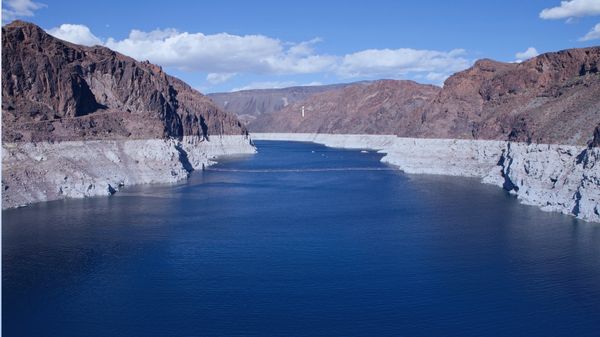Do you know that rising temperatures have a direct impact on your energy consumption?
As climate change continues to alter our environment, it is crucial to understand how it affects our energy needs. With increased demand for cooling and heating, extreme weather events causing disruptions, and shifting energy requirements, it’s time to decode the intricate relationship between climate change and energy use.
By exploring energy-saving solutions, we can work towards a sustainable future that benefits both us and the planet we call home.
Rising Temperatures and Energy Consumption
As temperatures rise, you’ll notice an increase in your energy consumption. This is due to the fact that higher temperatures lead to a greater need for cooling, resulting in the use of more energy.
In order to combat this issue, it’s important to consider implementing energy efficient technologies and utilizing renewable energy sources. Energy efficient technologies, such as smart thermostats and energy-saving appliances, can help reduce energy consumption by optimizing energy usage.
Additionally, incorporating renewable energy sources, such as solar panels or wind turbines, can provide a sustainable and clean alternative to traditional energy sources.
Increased Demand for Cooling and Heating
To meet the increased demand for cooling and heating, you should consider implementing energy-efficient technologies and utilizing renewable energy sources.
As global temperatures continue to rise due to climate change, the need for cooling systems to combat heatwaves and heating systems to provide warmth during extreme cold spells is becoming more crucial. However, traditional cooling and heating methods contribute significantly to greenhouse gas emissions and energy consumption.
By adopting energy-efficient technologies such as smart thermostats, high-efficiency HVAC systems, and insulation, you can reduce your energy usage and decrease your carbon footprint.
Additionally, incorporating renewable energy sources like solar panels or geothermal systems can further reduce your reliance on fossil fuels, leading to a more sustainable and environmentally-friendly approach to cooling and heating.
Embracing these solutions not only helps combat climate change but also ensures a more comfortable and energy-efficient living environment for you and your community.
Impact of Extreme Weather Events on Energy Use
Extreme weather events have a significant impact on your energy use. When these events occur, such as hurricanes, heatwaves, or severe storms, they can disrupt the energy infrastructure and lead to increased demand for electricity.
Here are four key ways extreme weather events affect your energy use:
- Power outages: Severe weather can damage power lines, transformers, and other infrastructure, causing widespread outages and leaving you without electricity for extended periods.
- Increased heating and cooling needs: Heatwaves and cold snaps can drive up the demand for heating and cooling, putting strain on the energy grid and leading to higher energy consumption.
- Infrastructure resilience: Extreme weather events highlight the importance of building a resilient energy infrastructure that can withstand and recover from these events more effectively.
- Renewable energy adaptation: Climate change and extreme weather events emphasize the need for transitioning to renewable energy sources, which can be more resilient and less vulnerable to disruptions caused by extreme weather.
To ensure a reliable and sustainable energy future, efforts must be made to strengthen infrastructure resilience and accelerate the adoption of renewable energy technologies.
Shifting Energy Needs in a Changing Climate
When climate change occurs, it’s essential to understand how shifting energy needs are affected. As the climate changes, so do the energy needs of communities and industries.
One way to address these shifting needs is through the adoption of energy efficient technologies. These technologies aim to reduce energy consumption and minimize greenhouse gas emissions. By implementing energy efficient appliances, buildings, and transportation systems, we can decrease our reliance on fossil fuels and mitigate the impacts of climate change.
Additionally, renewable energy sources play a crucial role in meeting the shifting energy needs. Solar, wind, and hydroelectric power offer sustainable alternatives to traditional energy sources, reducing carbon emissions and promoting a cleaner and more resilient energy sector.
Embracing energy efficient technologies and renewable energy sources is crucial in adapting to the changing climate and ensuring a sustainable future for all.
Energy-Saving Solutions for a Sustainable Future
Embrace energy-saving solutions for a sustainable future by implementing efficient technologies.
Here are four ways you can make a difference:
- Upgrade to energy-efficient appliances: By replacing old appliances with more efficient models, you can reduce energy consumption and save money on your utility bills.
- Install smart thermostats: These devices learn your heating and cooling preferences and adjust accordingly, optimizing energy usage and reducing waste.
- Switch to renewable energy sources: Consider installing solar panels or purchasing green energy from your utility provider. This way, you can reduce your reliance on fossil fuels and support the growth of clean energy.
- Use energy-saving lighting: Swap out traditional incandescent bulbs for energy-efficient LED or CFL lights. These alternatives last longer and use significantly less energy, resulting in lower electricity bills.
Conclusion
As temperatures continue to rise due to climate change, the demand for energy to power cooling and heating systems will only increase.
Extreme weather events will also have a significant impact on energy use, further exacerbating the need for efficient and sustainable solutions.
It’s crucial that we prioritize energy-saving measures and shift towards renewable sources to mitigate the effects of climate change on energy consumption.
By doing so, we can paint a brighter and more sustainable future for generations to come.




